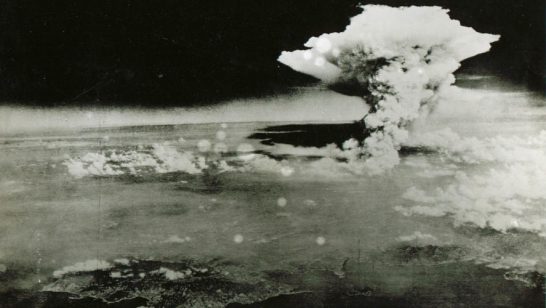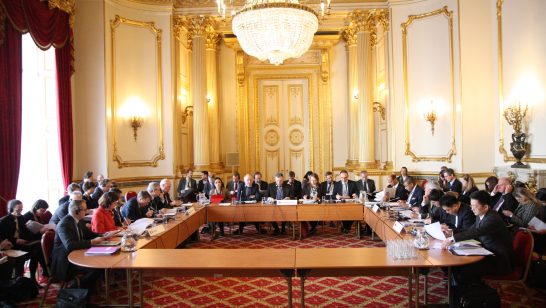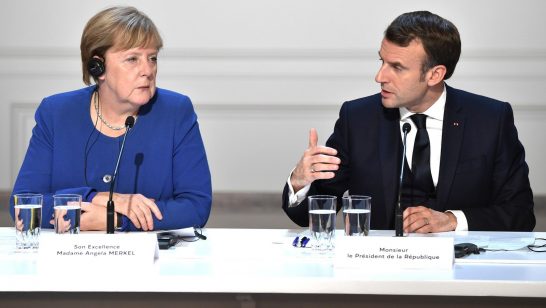
On 22 January 2021, nuclear weapons will be placed in the same category as chemical and biological weapons – the other weapons of mass destruction – illegal under international law. On that date, the Treaty on the Prohibition of Nuclear Weapons (TPNW) will enter into force and will change the legal and normative landscape around nuclear weapons. This has significant implications for any European governments complicit in the practice of deployment and potential use of nuclear weapons of mass destruction.
A historic milestone for nuclear disarmament
According to experts such as the Bulletin of Atomic Scientists, the United Nations Secretary-General, and numerous scientists, academics, and parliamentarians, the risk of nuclear weapons use is increasing. There is no doubt that any use of nuclear weapons would lead to catastrophic harm. The risk is rising in part because of technological modernisation programmes by all the nuclear-armed states and an increasing reliance on weapons of mass destruction by NATO states and nuclear allied states.
The growing international objections to this dangerous trend have been evident in the groundswell of support for the Treaty on the Prohibition of Nuclear Weapons (TPNW). With its 50th state ratification, the TPNW reached the minimum requirements for becoming international law in October. In response, the United Nations Secretary-General Antonio Guterres called the treaty “a meaningful commitment towards the total elimination of nuclear weapons”, and said he looked forward to helping to facilitate the treaty’s progress towards this goal. Peter Maurer, President of the International Committee of the Red Cross (ICRC), called it a “historic moment” and “a victory for humanity”, which allows us to envision a future without nuclear weapons as “an actual achievable goal”.
Impact on Europe
On 22 January 2021, states parties’ obligations under the treaty will be triggered. Three states in Europe — Austria, Ireland and Malta — have joined the TPNW. The fact that they find themselves in the minority in Europe is no surprise: the long-standing peer pressure from within NATO and the United States in particular to hold the line against the ban is, by now, well-known.
But the Treaty will have an impact on other European states – no matter if they join it or not. With its entry into force, the ban on nuclear weapons will be another step towards developing a norm against possessing nuclear weapons. It will positively influence the behaviour of states that are not party to the treaty, including the so-called ‘nuclear umbrella states’ (which have agreed to be protected by the nuclear weapons of nuclear-armed states), most of whom are on the European continent.
The potential classification of nuclear weapons as “controversial weapons” by finance industry observers and investors will have implications for banks, pension funds and investment companies. The Treaty will also prompt more discussion of the prohibition of nuclear weapons in parliament, civil society and the media in states not party. Already, over 1,600 elected representatives have called on their governments to join the TPNW, as have capitals in nuclear-armed states like Paris and Washington D.C.
As has been documented, the practice of nuclear-sharing allows the political risks from – and reputational costs of – participating in the practice of nuclear deterrence to be spread out. The result is a curious situation in which the possessors of nuclear weapons within NATO assert the legitimacy of their weapons by pointing at the obligation to ‘defend their allies’, while the non-nuclear weapon member states point to the need to have nuclear weapon states involved in any disarmament process–essentially giving the nuclear weapons states the right to veto how and when any such process should start.
The TPNW exposes these states for what they are at the moment: complicit in the legitimation of the most destructive and inhumane weapon ever invented – and standing ready to participate in the annihilation of cities and mass murder of civilians. In the states that host US nuclear weapons — Belgium, Germany, Italy, the Netherlands, and Turkey — the decision to accept these weapons of mass destruction onto their territory was never put to a vote, and for a long time was never publicly acknowledged by their governments. In the other nuclear umbrella states, the public has been told precious little of exactly how their countries will be involved in any decision to use nuclear weapons. Meanwhile, many of these same states pride themselves on being defenders of humanitarian law and democracy. The TPNW is making this double standard very hard to maintain.
Growing European support for the TPNW
Public opinion and growing political support for the TPNW is starting to show that the current European government support for nuclear weapons won’t be maintained forever. A similar and ultimately futile effort by the United States to keep NATO allies in line behind the use of cluster bombs was known to have taken place during the process leading to the Convention on Cluster Munitions (CCM).
In September, 56 ex-presidents and -ministers from 22 nuclear weapons-complicit states signed an open letter calling on the current leaders of their governments to join the TPNW. 46 of them were from Europe, including two former secretaries-general of NATO. The Belgian government’s new coalition agreement marks the first instance a NATO government has positively recognised the TPNW. And while discontent around nuclear sharing has long been bubbling in Germany around nuclear weapons, the SPD’s Rolf Mützenich caused a stir earlier this year when he voiced his opposition to extending the stationing of US nuclear weapons at Büchel air base. More recently, the Green Party – who are strong contenders to join the next government – included a clear commitment to getting Germany to join the TPNW in their party platform for the 2021 elections.
These gains are modest, but they are significant and will grow over time. With major elections in several European NATO states this year, the TPNW is guaranteed to continue to be an issue in building coalition governments. Public opinion polls show support for the TPNW across Europe: 79% of Swedes, 78% of Norwegians, 84% of Finns, 70% of Italians, 68% of Germans, 67% of French, and 64% of Belgians support their governments joining the treaty, along with 75% of Japanese.
There’s a right way and a wrong way to react to the momentum of the TPNW. The nuclear-armed states, led by the United States, are conducting a master class in doing it wrong. European NATO allies must do better if they want to be on the right side of history.
What European governments should do next
So what can European governments do? In the spirit of the Belgian government declaration, they should look to how to use the TPNW to advance nuclear disarmament:
- At the NPT Review Conference in 2021, they should acknowledge that the TPNW is an important development for nuclear disarmament as an implementation of NPT’s Article 6, as well as reinforcing the non-proliferation pillar.
- Governments should be transparent about their involvement with nuclear weapons and identify ways in which they are in contravention of the norms embodied by the TPNW. Formal reviews should be conducted which explore the steps that would need to be taken in order to join the TPNW.
- The TPNW’s first meeting of states parties will take place within 12 months of Entry-into-force. While undertaking the aforementioned review, nuclear weapons-complicit states should constructively participate in the MSP as observers, with a view to joining the Treaty in the future.
- The TPNW continues the tradition of other weapons treaties like the CCM and the Anti-personnel Mine Ban Convention by containing positive obligations on Victim Assistance and Environmental Remediation. States unable to join the TPNW at the moment should, as a minimum, contribute to victim assistance and environmental remediation programmes to help the communities that continue to suffer from the devastating impacts of nuclear weapons testing. The nuclear-armed states and their allies have a special responsibility in this respect.
For all the talk of NATO being a “nuclear alliance for as long as nuclear weapons exist”, this is a question of policy rather than a legal obligation under the alliance’s founding treaty. And while the TPNW’s existence in international law will be constant, policy on nuclear weapons in individual European states, and even in the alliance itself, has and will continue to fluctuate over time.
The risk of nuclear weapons use is growing, in particular, due to emerging technologies that will have a profound impact on warfare in the future, from cyberattacks to artificial intelligence. It is naive and irresponsible to think that European states can maintain their support for the continued existence and deployment of such profoundly dangerous weapons, on the assumptions that deterrence will last forever and no mistakes will ever be made. Their publics do not believe them, and are demanding change.
The opinions articulated above represent the views of the author, and do not necessarily reflect the position of the European Leadership Network (ELN) or any of the ELN’s members. The ELN’s aim is to encourage debates that will help develop Europe’s capacity to address pressing foreign, defence, and security challenges.
Image: Flicke, Kelly Michals




